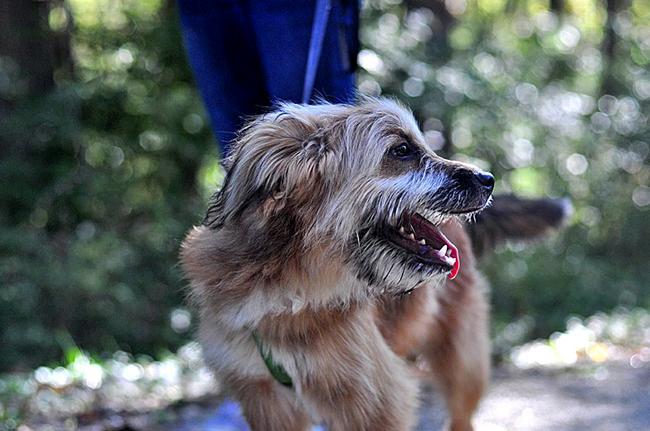New health studies performed by MU professor Rebecca Johnson prove people who walk with dogs rather than alone will be healthier and lose more weight.
As published in the book “Walk a Hound, Lose a Pound: How You and Your Dog Can Lose Weight, Stay Fit and Have Fun Together” co-written by Johnson and veterinary surgeon and journalist Phil Zeltzman, the human and dog relationship can be used to drive the human toward more exercise than if he or she were to walk alone.
“Dog walking is uniquely able to help promote physical and emotional health on both ends of the leash,” the book states. “Getting exercise while enjoying nature, giving the gift of joy to your dog or another dog in need, and interacting with other dog lovers makes dog walking a uniquely pleasurable physical activity. We believe that it can create a strong foundation for a healthier lifestyle. Scientific research proves our point.”
The research suggests that dog owners will live healthier lifestyles because of the constant companionship and drive to be active one receives from a dog. Many college students don’t own a furry friend, but there are still ways for college students to actively walk with dogs.
The Walk a Hound, Lose a Pound project has been running locally for six years at the Columbia Humane Society. The program gives students and community members the chance to walk shelter dogs every Saturday morning from April until October.
Charlotte McKenny, assistant director at the Research Center for Human and Animal Interaction, said the program has several loyal walkers who return year after year.
“It’s wonderful to have them return every year and to see them grow and see them appreciate the dogs and how they have become more comfortable with walking dogs and just maintain their health,” McKenney said.
Anyone who participates in Walk a Hound, Lose a Pound will quickly understand the cause of the enhanced weight loss. Walkers might be going to enjoy the companionship of an animal, but will surely leave exhausted from walking the dogs.
“I was very tired,” freshman Heather Adams said. “The dogs were very hyper, so it was sometimes pretty stressful to keep them on the path, and they definitely have a lot of energy. It was a workout.”
Due to the animals’ high energy, walkers feel obligated to pick up their walking pace and even walk for a longer period of time, which not only keeps the dog active, but also the human, according to the study.
“My dog wanted to run,” senior Mason Hadley said.
The motivation provided by the dogs drives their walkers to perform better not only in their exercise, but in adopting a better lifestyle by making healthier decisions every day.
“There are participants who tell us that their blood pressure has improved, that they also are able to maintain their weight because participating in the walk a hound program encourages them to maintain a regular exercise regimen during the week,” McKenney said.
Pet owners begin to adopt a routine with their pet with the mindset that they are keeping the dog active. What they might not realize is that walking with a dog also makes people feel more relaxed and can lower blood pressure, which adds to the benefits they are receiving from daily exercise.
“It was a workout, but it was a fun workout,” sophomore Hannah Finch said. “There are definitely some energetic dogs here.”
Finch, who walked dogs with Hadley, said she went to get her dog fix. She was missing her own dogs back home in Springfield.
“It was fun to see her struggle with the dog,” said Hadley. “He was walking her.”
Dogs are paired with walkers based on how Humane Society staff thinks they will work together. This practice sometimes leaves the larger dogs in their cages.
“Small dogs are easier to walk,” Finch said. “But if you can handle a big dog they have a lot of energy too, plus I think a lot of people want the smaller dogs.”
Animals in shelters such as the Humane Society often become less social, which makes it difficult for them to be adopted, said Nicole Harmon, Columbia Humane Society foster care coordinator. The walking program might aid in diminishing the effects of shelter life.
“The dogs get more interaction with people so they’re not just sitting in a cage all day,” Harmon said. “It helps us know more about the dogs when they’re out on their walk, (such as) little quirks that we wouldn’t find out otherwise, so that helps them get adopted a lot faster because people know a lot more about them, they’re not so full of energy and jumping in their cage.”
The Walk a Hound, Lose a Pound project runs annually through City of Columbia Parks and Recreation and requires a $10 participation fee to be donated to local shelters. It is open to Columbia residents who want to become more active, begin living healthier lifestyles and contribute time to community canines.








